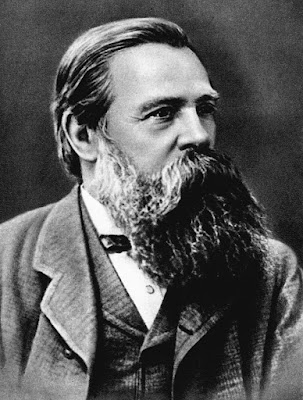Engels, Authority, and Collective Rights
Under capitalism, most if not all facets of society are dictated by capital and profits; people are subordinated to the dictatorship of the bourgeoisie through the exploitation of human labour in order to generate value. Yet, liberal postmodernist buzzwords such as “totalitarian” and “authoritarian” are rarely if ever used to describe the system of capitalism. Distrust of the ruling class is indeed justified, but it needs to be grounded in material and economic reality. The only way to guarantee true freedom for every individual is to put forward demands for the collective rights of the masses in the struggle for socialism. Individual liberties, especially America’s culturally libertarian ethos, are at odds with socialism and thus have no place in the struggle. Engels reminds us that the dictatorship of the proletariat, under socialism and communism, is a necessary form of authority that needs to be exercised in order to preserve and enhance the gains of the revolution. “Authoritarian” within the context of a planned economy under socialism means democratic centralism and a collaborative and collective effort of the working class and the state. To completely eschew all forms of ‘authority’ is, as Engels states in his essay (linked below), reactionary. Being “anti-authoritarian” is even more meaningless today, considering that not only is the anarchy of production already inherent to capitalism, but also because Neoliberalism is a higher stage of privatization and deregulation which advocates laissez-faire free markets and involves significantly rolling back state intervention in the economy.
Read Frederich Engels' 1872 short essay, "On Authority," here.




Comments
Post a Comment